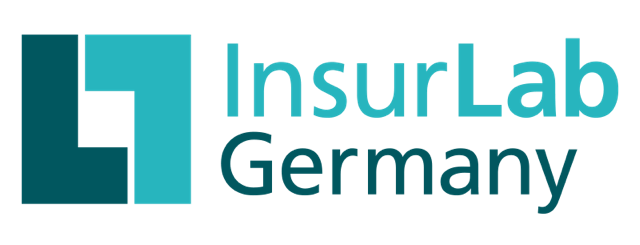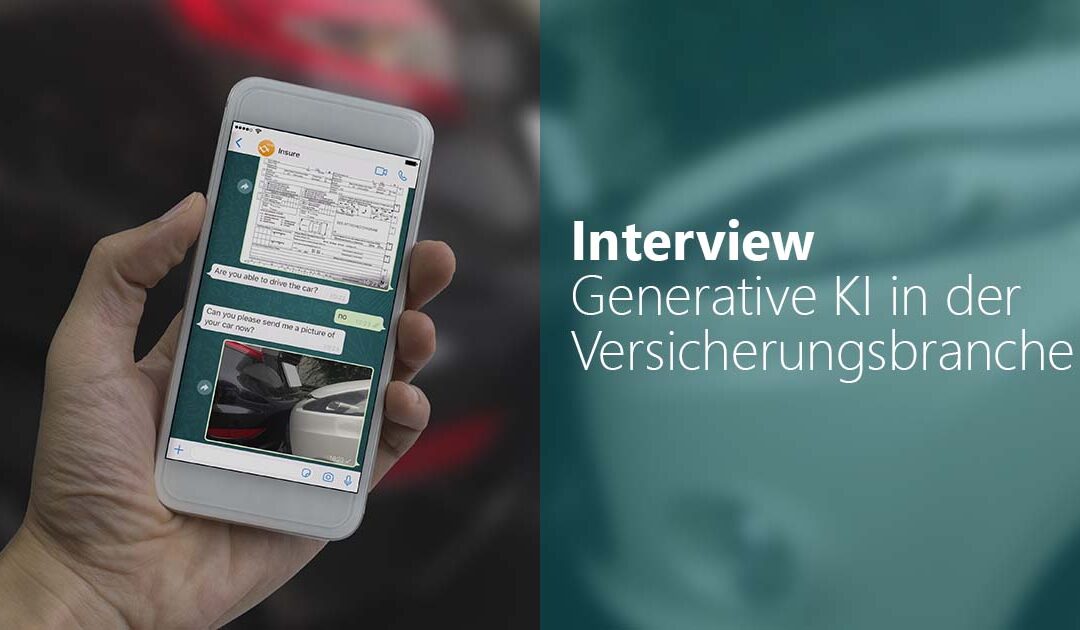New AI language models such as ChatGPT / GPT-X in combination with proven bot technology accelerate the digital transformation of customer service: Bot development becomes more efficient. Voice and chatbots communicate even more naturally and personalized. Employees in the contact center are supported even better. Sebastian Glock from our member and Conversational AI pioneer explains what insurers should keep in mind. Cognigy in the interview.
Cognigy has major global insurers as customers who use bots in various business applications, both externally and internally. The Düsseldorf-based AI provider was one of the first in the market to fully embrace Generative AI and made GPT-X functionalities available for contact center use in early 2023.
The digitization of insurance is in full swing. What role will AI, and conversational AI in particular, play in delivering a better service experience?
Sebastian Glock: Whether it's quotes for insurance products, billing questions, or reporting a claim, customers today expect fast, straightforward support. To remain competitive, insurers are increasingly digitizing and standardizing their processes, using data more efficiently, and offering various digital self-services. As a result, personal support is increasingly being shifted to central call centers. This opens up a new form of relationship between insurers and customers. Smart virtual assistants and conversational AI play a key role here. This is also shown by studies: According to KPMG study 76% of global insurance CEOs say customer engagement and inquiries will be predominantly through virtual platforms. And 68% of insurance CEOs said they are focusing on technologies such as voice and chatbots.
Insurance companies not only expect savings and lower costs from a centralized and automated service - it is above all a question of increasing the customer experience. Conversational AI can make customer interactions more personal and pleasant again. It can help customers across all communication channels - whether on the phone, via webchat, or through services like WhatsApp or Facebook Messenger - effectively, 24/7, and in their native language on a wide range of topics and specific inquiries. At the same time, insurance companies can drive forward their strategy of a lean, centralized service.
How do you estimate the acceptance, especially in the area of telephony? How well developed and operational are voicebots today?
Sebastian Glock: Automating telephone dialogs is the real AI magic and therefore one of the greatest added values we offer. A telephone conversation with our AI sounds distinctly natural - there has been a massive leap in technology here in recent years. Our voicebots - that is, bots that can be communicated with via naturally spoken language - understand and respond in an extremely human-like manner, while it is always clear that we are dealing with a bot. As a result, insurers can offer their customers a competent contact person at all times and immediately, who can deal with their concerns reliably and quickly. In addition, the telephone channel can now be seamlessly combined with digital channels: When a claim is first reported, for example, the policy number, date and time, location of the incident, and even photos and document scans can be submitted directly.
See how an accident claim is conveniently handled through an automated, secure and user-friendly process via WhatsApp in this Video.
Insurance companies using Conversational AI can now resolve up to two-thirds of customer queries directly, without the need for employees. For all individual requests that are more complex or require emotional understanding, Conversational AI supports the customer service and first asks the customer a series of relevant questions that ideally prepare the employee for the upcoming conversation. This results in goal-oriented teamwork between AI and humans.
Many international companies also use conversational AI for outbound communication, i.e. for proactive, automated calls or messages, for example to arrange or reschedule appointments. In the DACH region, however, companies are still more reticent.
ChatGPT has generated media hype in recent months. Some insurers, such as Zurich and Helvetia, have stated that they want to experiment with ChatGPT to explore its potential. You guys, as AI pioneers, have been looking at it extensively as early as 2022. What's your advice?
Sebastian Glock: The technology has tremendous transformative energy and in combination with Conversational AI it is a game changer. Generative AI will take the interaction between companies and their customers to a new level by providing a better service experience. It will further reduce the burden on the contact center and ensure greater adoption. However, it is important to have a realistic view of this new development, as ChatGPT can do a lot, but still has clear limitations.
Generative AI is not suitable for customer service on its own. This is because ChatGPT lacks specific product and business knowledge, as well as knowledge about typical customer problems and service processes. The language models have no access to customer and product data and cannot trigger actions, as is necessary for self-services, for example. Another problem is that the AI is not a team player and does not know when a handover to a human is required. These are all clear no-goes for use in customer contact.
However, the combination of Generative AI and proven Conversational AI has disruptive potential. We see benefits in three areas:
- Improving the customer experience through AI-supported dialogs that are tailored to the context of the conversation and the preferences of the conversation partner. Virtual agents will be able to respond to customers in a more natural-sounding and personalized way. For example, questions will no longer be answered with the best-fit answer from prefabricated FAQ modules. Instead, tailored answers will be generated in real time - just as is the case with ChatGPT.
- Support for employees in the contact center. For example, agents receive dynamically generated, individually tailored response suggestions based on the context and tone of the conversation taking place. This reduces handling times (AHT) and increases service quality. Agents can also be deployed after only a short training period.
- Efficiency: Companies and departments can implement, develop and optimize automated dialogs and new bot applications much faster and with even better quality.
Hear what a conversation with a next-generation voicebot sounds like.
How secure are ChatGPT & Co. Do they meet the requirements of local insurance companies?
Sebastian Glock: Generative AI and Conversational AI also play together on such important topics as trust, security, privacy. An enterprise CAI platform like Cognigy.AI basically supports any connected solution, be it GPT-X from OpenAI or any other generative AI, with proven standards: for example, to anonymize personal data, use encrypted communication and ensure GDPR-compliance. Especially for corporations and companies that are highly regulated, Digital Trust is a crucial criterion. The platform also ensures accurate statements and the right tone of voice. For example, the business department can control and test how much the bots' responses are personalized. Everything is transparent, documented and under the control of the employees.
So the risks are quite manageable. The much greater risk is to miss the opportunities and changes that are currently emerging with GPT-X: We are at the beginning of a new era of automated end-to-end solutions in customer:inside service and our clear recommendation is to deal with the new fascinating possibilities early and intensively.
Sebastian Glock is Technology Evangelist at Cognigy in Düsseldorf, the market leader in Conversational AI. As Head of Product Marketing at Cognigy, he works at the intersection of AI development, software development and real-world solutions for better customer:ing service. Cognigy provides AI-based support to enterprise contact centers to exceed customer:inside expectations, improve agent satisfaction, and respond quickly to market changes. Over 1,000 brands worldwide use Cognigy to deliver always-on, personalized and scalable experiences across voice and chat on any channel and in over 100 languages. Customers include ARAG, Bosch, E.ON, Fidelity Life, Henkel, Lufthansa, Mercedes-Benz, Toyota and more. More information: https://www.cognigy.com/

